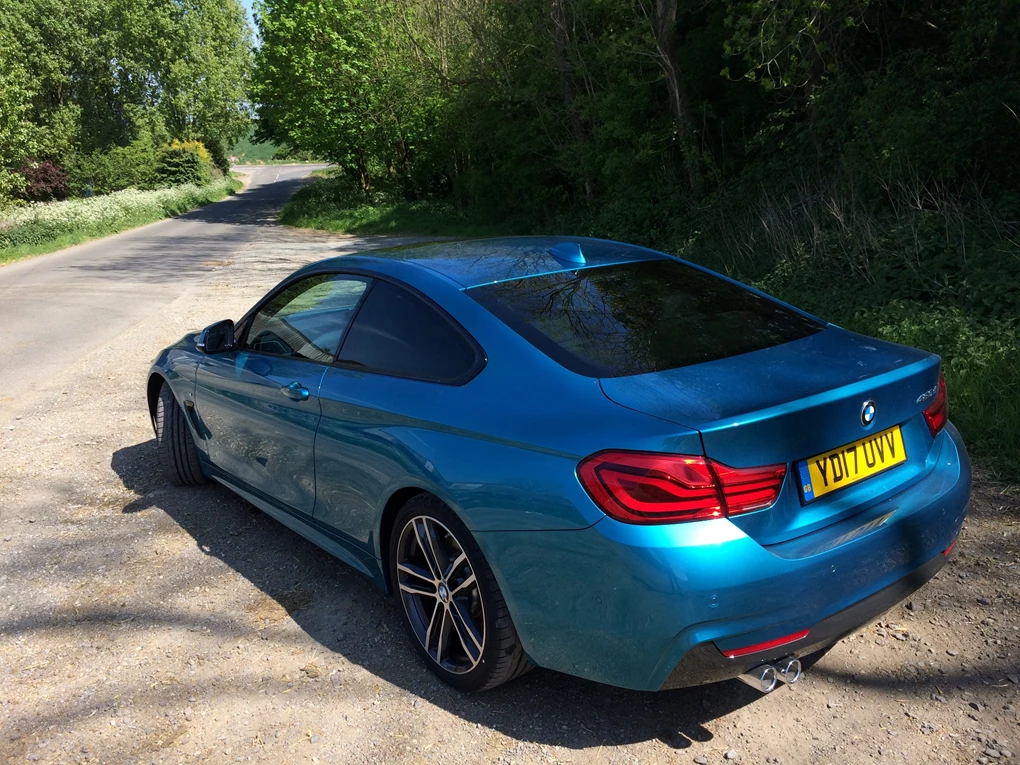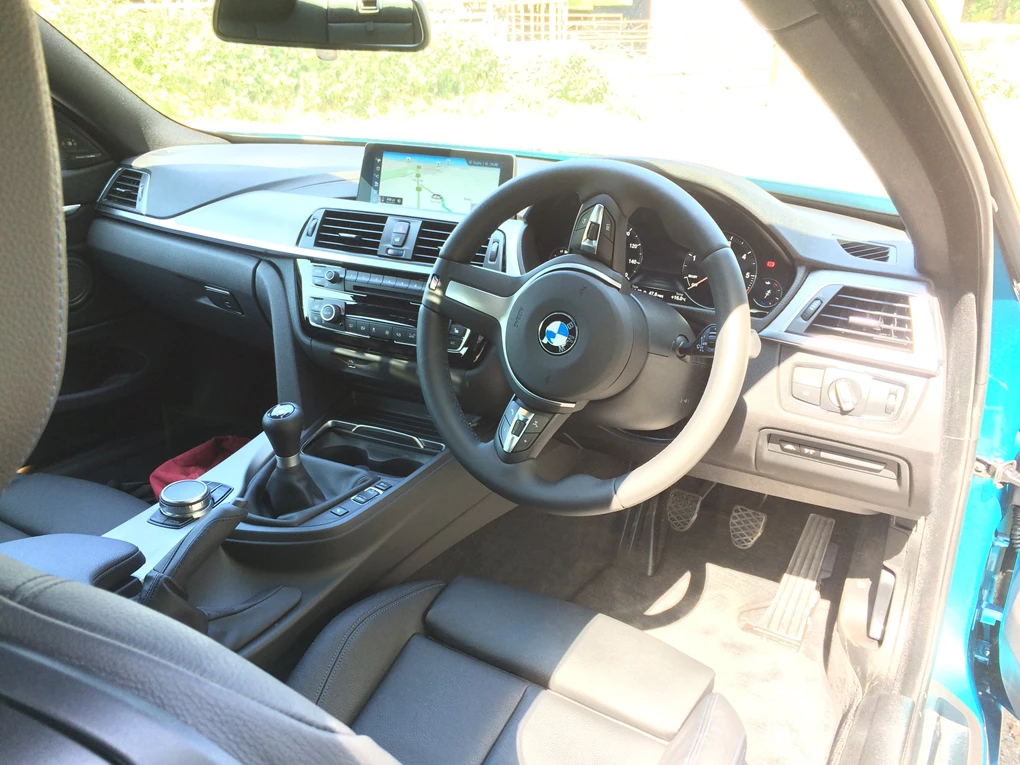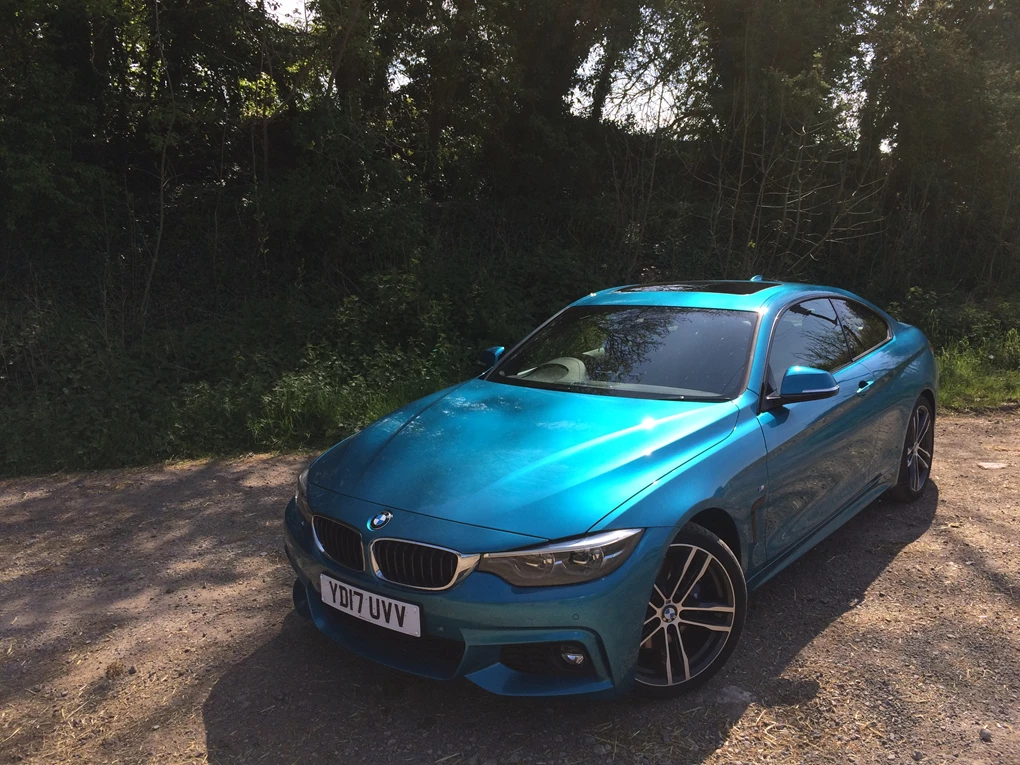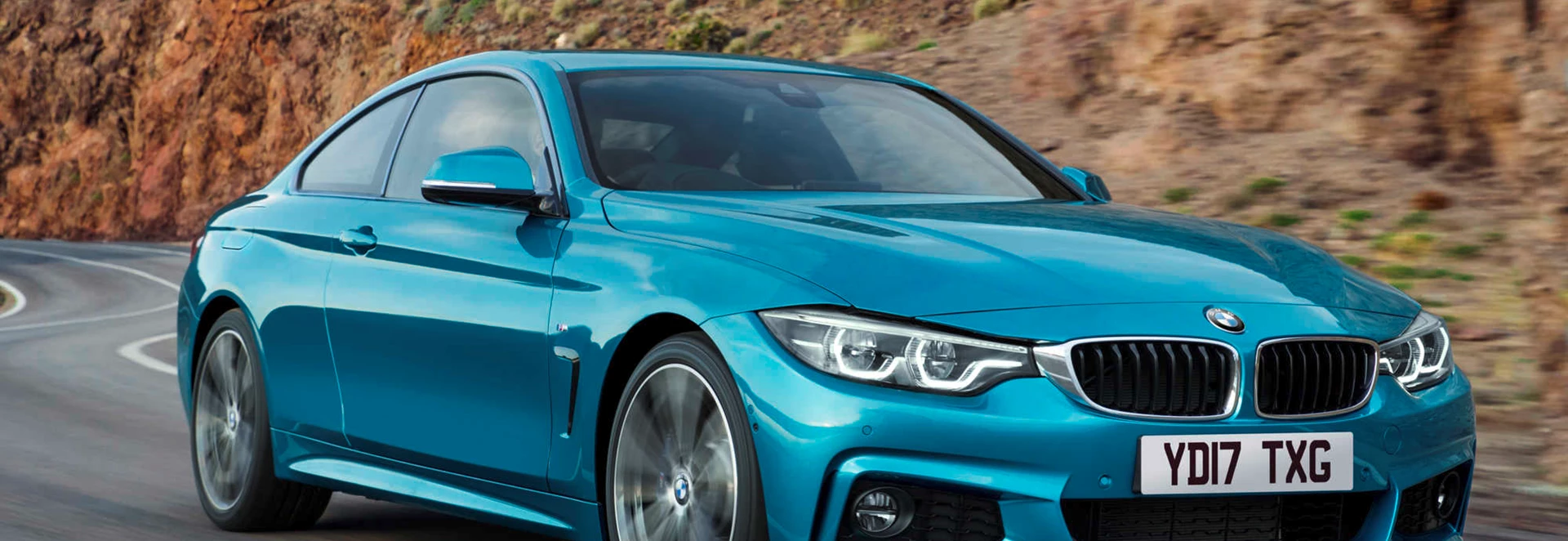The sleeker, sexier sister car to the ubiquitous 3 Series, the 4 Series continues BMW’s modern trend of giving its sportier two-door options the even-numbered nameplates, but there’s more to differentiate it than just two less doors and a rakish roofline.
For a start, it’s lower and wider than its saloon counterpart to better exploit its rear-wheel drive dynamics, while it’s also available as a standard hardtop coupe, as a convertible or as a larger and slightly more practical Gran Coupe.
New for 2017 are some minor updates like a new design for the LED lights, some minor suspension tweaks, larger tailpipes across the board and new interior trim options. And that’s about it.
Hardly transformative, but then the 4 Series has always been rather good to begin with and BMW has never been a manufacturer to indulge in idle ‘it-ain’t-broke-but-we’ll-fix-it-anyway’ tinkering.

Performance
Like most BMWs, the 4 Series comes with a wide choice of different petrol and diesel engines, but although it’s nominally that bit sportier than its 3 Series sibling, it’s still the entry-level 420d diesel which is the best seller here in the UK.
A 2.0-litre turbocharged four-cylinder diesel, the 420d makes 188bhp with 400Nm of torque, which when paired with the six-speed manual gearbox that came fitted to our test car, is enough power to get the car from 0-62mph in 7.3 seconds and on to a top speed of 240mph.
You can also have the 420d with the option of an eight-speed automatic gearbox, which most buyers will likely opt for, as well as BMW’s xDrive four-wheel drive system. With xDrive, it’s slightly slower to 0-62mph, though the auto drops the 0-62mph sprint time to 7.1 seconds.
All well and good, but what’s it actually like? Well, in larger and heavier BMWs like the 5 Series and 7 Series, we’d recommend going for one of the more powerful engine options, and the 4 Series is also available with more potent 255bhp 430d and 308bhp 435d options, but we reckon the 420d feels just right for this car.
Power delivery is smooth and the diesel’s torquey nature means that it has more than enough poke for overtaking on the motorway or for attacking your favourite B-road, while it’s also remarkably quiet and refined, making it an ideal long-distance cruiser.
Ride and Handling
With a lower centre of gravity and a wider track than its 3 Series sibling it’s just that bit more agile, and makes for one of the best driving cars in its segment
The 4 Series has always been a good car to drive, but this newly-facelifted version comes with a couple of tweaks below the skin to further improve and refine its on-road behaviour. Most notably, the chassis and suspension have received minor tweaks to increase feedback while producing a more neutral response on the limit. That’s what BMW says anyway, but without ragging the car around a test track and testing it back-to-back with the pre-facelift version, it’s nigh impossible to tell. In any case, it won’t matter for most drivers and in daily driving it’s entirely inconsequential. What is obvious, however, is just how fantastically balanced the car is. With a lower centre of gravity and a wider track than its 3 Series sibling, it’s just that bit more agile and makes for one of the best driving cars in its segment. We’re not entirely convinced by the car’s steering though, despite the fact that it’s quick and accurate. It just feels a touch too light and lacking in feedback, something which is common to a lot of modern BMWs with electric steering. The manual gearbox in our test car is a lot of fun, though if we were to put our own money on one we’d likely go for the automatic, given that 4 Series drivers will tend to go long distances and the auto is more refined, much less fuss and more forgiving in congestion and stop-start traffic. Speaking of doing long distances, the 420d’s agility and keenness doesn’t come at the expense of ride comfort. Specifying larger alloy wheels will inevitably reduce refinement a little and increase road noise, and although the Mercedes C-Class might just have the edge on the 4 Series in terms of overall comfort, the Bimmer is a much more enjoyable car to drive.

Interior and Equipment
BMW’s slogan ‘The Ultimate Driving Machine’ is one of the most recognisable in the world, and also one of the oldest in use as it’s been around for more than 35 years
The 4 Series’ main selling point is its sleek coupe looks, but despite the sloping roofline, interior space and visibility aren’t bad, all things considered. Its low-slung seating position makes it comfortable to sit in too, while cabin materials are all of high quality and solid build. New for the facelifted car are a couple of optional extras like the ‘Aluminium Carbon’ trim pieces that came fitted to our test model, while it also features high-quality leather upholstery and a range of different trim and colour options for buyers to choose from. Along with the other updates, BMW has given the trim structure a minor reshuffle as well, quietly ditching the previously-available Luxury trim. As a result, there are now three trims to choose from: SE, Sport and M Sport. The entry-level SE trim is reserved primarily for business drivers who want the cool coupe looks of the 4 Series but with sensible fleet costs, while the vast majority of buyers in the UK will opt for the range-topping M Sport trim. Along with adding a few BMW M-inspired touches like a sportier bodykit, M Sport cars get a large 8.8-inch infotainment screen as standard along with DAB digital radio and integrated sat-nav. The screen works using BMW’s innovative iDrive rotary controller, which makes it a breeze to use and much safer while on the move than the touchscreens used by many other manufacturers. Heated leather seats, Xenon headlights and parking sensors come as standard on all 4 Series models, while there’s also a wide range of optional extras like a reversing camera, a self-parking system and a heads-up display which projects driving information onto the windscreen. Our test car also came with the optional digital instrument display, which for £295 is a worthwhile addition. Replacing the standard analogue dials with a large and sleek digital display, it can be customised to show everything from trip information to sat-nav directions. Given its rakish coupe dimensions, there’s not a huge amount of headroom in the back, as you might expect, although legroom is surprisingly good, so the 4 Series could accommodate children and passengers relatively easily, at least for shorter trips. There is the option of the Gran Coupe variant, which is the most popular version of the 4 Series in the UK, which keeps the coupe looks but adds a bit more space and usability. Still, if you’re a single driver, and this is your second car or if you only occasionally carry passengers, then the regular coupe is still a good option. The 445-litre boot puts it on par with most of its rivals, while the wide and square shape make it easy enough to load in awkwardly-shaped objects. Typically, coupes aren’t known for their practicality, but the 4 Series is better than most and also comes with handy cargo nets for securing loose items.
Cost
Running costs for the 420d are competitive with the car able to return up 65.7mpg with CO2 emissions as low as 114g/km, according to BMW’s official figures
Prices for the 4 Series coupe start from £32,580 for the entry-level 420i petrol, while the 420d starts from £35,055. The option of xDrive four-wheel drive costs £1,800 on top, while opting for the Convertible over the coupe will cost an extra five grand or so, however the larger Gran Coupe version starts from exactly the same price as the regular coupe. Do be aware that additional options can add up quite quickly too, and although the 4 Series comes very well specced as standard, with a couple of choice extras the price can inflate significantly. Still, running costs for the 420d are competitive with the car able to return up to 65.7mpg with CO2 emissions as low as 114g/km according to BMW’s official figures, making it the most efficient car in the 4 Series range.
Our Verdict
Typically, coupes aren’t known for being good to drive, comfortable and practical all at once, but the BMW 4 Series probably has the broadest range of abilities in its class, and the 420d, in turn, has the broadest stretch of abilities within the 4 Series range. It’s great looking, packed with top-end kit and in 420d format is even remarkably efficient to boot. In summary, the 4 Series is one of those cars that’s going to tick a lot of boxes for a lot of different buyers, and though the latest updates are light, that only goes to highlight what a fantastic all-rounder it already is.





